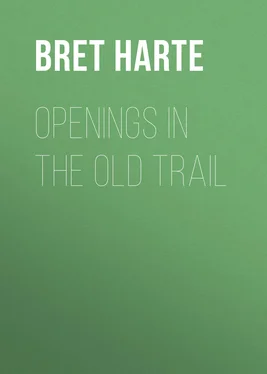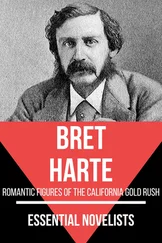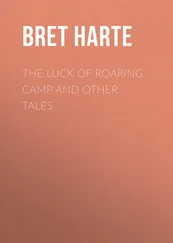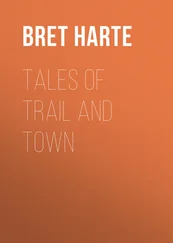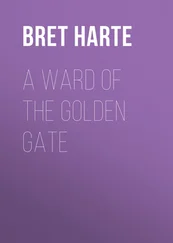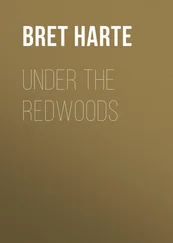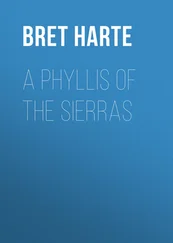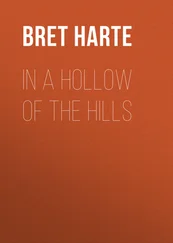Bret Harte - Openings in the Old Trail
Здесь есть возможность читать онлайн «Bret Harte - Openings in the Old Trail» — ознакомительный отрывок электронной книги совершенно бесплатно, а после прочтения отрывка купить полную версию. В некоторых случаях можно слушать аудио, скачать через торрент в формате fb2 и присутствует краткое содержание. Жанр: foreign_sf, literature_19, foreign_antique, foreign_prose, на английском языке. Описание произведения, (предисловие) а так же отзывы посетителей доступны на портале библиотеки ЛибКат.
- Название:Openings in the Old Trail
- Автор:
- Жанр:
- Год:неизвестен
- ISBN:нет данных
- Рейтинг книги:3 / 5. Голосов: 1
-
Избранное:Добавить в избранное
- Отзывы:
-
Ваша оценка:
- 60
- 1
- 2
- 3
- 4
- 5
Openings in the Old Trail: краткое содержание, описание и аннотация
Предлагаем к чтению аннотацию, описание, краткое содержание или предисловие (зависит от того, что написал сам автор книги «Openings in the Old Trail»). Если вы не нашли необходимую информацию о книге — напишите в комментариях, мы постараемся отыскать её.
Openings in the Old Trail — читать онлайн ознакомительный отрывок
Ниже представлен текст книги, разбитый по страницам. Система сохранения места последней прочитанной страницы, позволяет с удобством читать онлайн бесплатно книгу «Openings in the Old Trail», без необходимости каждый раз заново искать на чём Вы остановились. Поставьте закладку, и сможете в любой момент перейти на страницу, на которой закончили чтение.
Интервал:
Закладка:
The Colonel paused, and Mr. Hotchkiss regarded him with increased impatience. The Colonel, however, continued, with unchanged deliberation: “It concerns—er—er—a young lady—a beautiful, high-souled creature, sir, who, apart from her personal loveliness—er—er—I may say is of one of the first families of Missouri, and—er—not remotely connected by marriage with one of—er—er—my boyhood’s dearest friends.” The latter, I grieve to say, was a pure invention of the Colonel’s—an oratorical addition to the scanty information he had obtained the previous day. “The young lady,” he continued blandly, “enjoys the further distinction of being the object of such attention from you as would make this interview—really—a confidential matter—er—er among friends and—er—er—relations in present and future. I need not say that the lady I refer to is Miss Zaidee Juno Hooker, only daughter of Almira Ann Hooker, relict of Jefferson Brown Hooker, formerly of Boone County, Kentucky, and latterly of—er—Pike County, Missouri.”
The sallow, ascetic hue of Mr. Hotchkiss’s face had passed through a livid and then a greenish shade, and finally settled into a sullen red. “What’s all this about?” he demanded roughly.
The least touch of belligerent fire came into Starbottle’s eye, but his bland courtesy did not change. “I believe,” he said politely, “I have made myself clear as between—er—gentlemen, though perhaps not as clear as I should to—er—er—jury.”
Mr. Hotchkiss was apparently struck with some significance in the lawyer’s reply. “I don’t know,” he said, in a lower and more cautious voice, “what you mean by what you call ‘my attentions’ to—any one—or how it concerns you. I have not exchanged half a dozen words with—the person you name—have never written her a line—nor even called at her house.”
He rose with an assumption of ease, pulled down his waistcoat, buttoned his coat, and took up his hat. The Colonel did not move.
“I believe I have already indicated my meaning in what I have called ‘your attentions,’” said the Colonel blandly, “and given you my ‘concern’ for speaking as—er—er—mutual friend. As to YOUR statement of your relations with Miss Hooker, I may state that it is fully corroborated by the statement of the young lady herself in this very office yesterday.”
“Then what does this impertinent nonsense mean? Why am I summoned here?” demanded Hotchkiss furiously.
“Because,” said the Colonel deliberately, “that statement is infamously—yes, damnably to your discredit, sir!”
Mr. Hotchkiss was here seized by one of those impotent and inconsistent rages which occasionally betray the habitually cautious and timid man. He caught up the Colonel’s stick, which was lying on the table. At the same moment the Colonel, without any apparent effort, grasped it by the handle. To Mr. Hotchkiss’s astonishment, the stick separated in two pieces, leaving the handle and about two feet of narrow glittering steel in the Colonel’s hand. The man recoiled, dropping the useless fragment. The Colonel picked it up, fitted the shining blade in it, clicked the spring, and then rising with a face of courtesy yet of unmistakably genuine pain, and with even a slight tremor in his voice, said gravely,—
“Mr. Hotchkiss, I owe you a thousand apologies, sir, that—er—a weapon should be drawn by me—even through your own inadvertence—under the sacred protection of my roof, and upon an unarmed man. I beg your pardon, sir, and I even withdraw the expressions which provoked that inadvertence. Nor does this apology prevent you from holding me responsible—personally responsible—ELSEWHERE for an indiscretion committed in behalf of a lady—my—er—client.”
“Your client? Do you mean you have taken her case? You, the counsel for the Ditch Company?” asked Mr. Hotchkiss, in trembling indignation.
“Having won YOUR case, sir,” replied the Colonel coolly, “the—er—usages of advocacy do not prevent me from espousing the cause of the weak and unprotected.”
“We shall see, sir,” said Hotchkiss, grasping the handle of the door and backing into the passage. “There are other lawyers who”—
“Permit me to see you out,” interrupted the Colonel, rising politely.
–“will be ready to resist the attacks of blackmail,” continued Hotchkiss, retreating along the passage.
“And then you will be able to repeat your remarks to me IN THE STREET,” continued the Colonel, bowing, as he persisted in following his visitor to the door.
But here Mr. Hotchkiss quickly slammed it behind him, and hurried away. The Colonel returned to his office, and sitting down, took a sheet of letter-paper bearing the inscription “Starbottle and Stryker, Attorneys and Counselors,” and wrote the following lines:—
HOOKER versus HOTCHKISS.
DEAR MADAM,—Having had a visit from the defendant in above, we should be pleased to have an interview with you at two P. M. to-morrow.
Your obedient servants, STARBOTTLE AND STRYKER.This he sealed and dispatched by his trusted servant Jim, and then devoted a few moments to reflection. It was the custom of the Colonel to act first, and justify the action by reason afterwards.
He knew that Hotchkiss would at once lay the matter before rival counsel. He knew that they would advise him that Miss Hooker had “no case”—that she would be nonsuited on her own evidence, and he ought not to compromise, but be ready to stand trial. He believed, however, that Hotchkiss feared such exposure, and although his own instincts had been at first against this remedy, he was now instinctively in favor of it. He remembered his own power with a jury; his vanity and his chivalry alike approved of this heroic method; he was bound by no prosaic facts—he had his own theory of the case, which no mere evidence could gainsay. In fact, Mrs. Hooker’s admission that he was to “tell the story in his own way” actually appeared to him an inspiration and a prophecy.
Perhaps there was something else, due possibly to the lady’s wonderful eyes, of which he had thought much. Yet it was not her simplicity that affected him solely; on the contrary, it was her apparent intelligent reading of the character of her recreant lover—and of his own! Of all the Colonel’s previous “light” or “serious” loves, none had ever before flattered him in that way. And it was this, combined with the respect which he had held for their professional relations, that precluded his having a more familiar knowledge of his client, through serious questioning or playful gallantry. I am not sure it was not part of the charm to have a rustic femme incomprise as a client.
Nothing could exceed the respect with which he greeted her as she entered his office the next day. He even affected not to notice that she had put on her best clothes, and he made no doubt appeared as when she had first attracted the mature yet faithless attentions of Deacon Hotchkiss at church. A white virginal muslin was belted around her slim figure by a blue ribbon, and her Leghorn hat was drawn around her oval cheek by a bow of the same color. She had a Southern girl’s narrow feet, encased in white stockings and kid slippers, which were crossed primly before her as she sat in a chair, supporting her arm by her faithful parasol planted firmly on the floor. A faint odor of southernwood exhaled from her, and, oddly enough, stirred the Colonel with a far-off recollection of a pine-shaded Sunday-school on a Georgia hillside, and of his first love, aged ten, in a short starched frock. Possibly it was the same recollection that revived something of the awkwardness he had felt then.
He, however, smiled vaguely, and sitting down, coughed slightly, and placed his finger-tips together. “I have had an—er—interview with Mr. Hotchkiss, but—I—er—regret to say there seems to be no prospect of—er—compromise.”
Читать дальшеИнтервал:
Закладка:
Похожие книги на «Openings in the Old Trail»
Представляем Вашему вниманию похожие книги на «Openings in the Old Trail» списком для выбора. Мы отобрали схожую по названию и смыслу литературу в надежде предоставить читателям больше вариантов отыскать новые, интересные, ещё непрочитанные произведения.
Обсуждение, отзывы о книге «Openings in the Old Trail» и просто собственные мнения читателей. Оставьте ваши комментарии, напишите, что Вы думаете о произведении, его смысле или главных героях. Укажите что конкретно понравилось, а что нет, и почему Вы так считаете.
